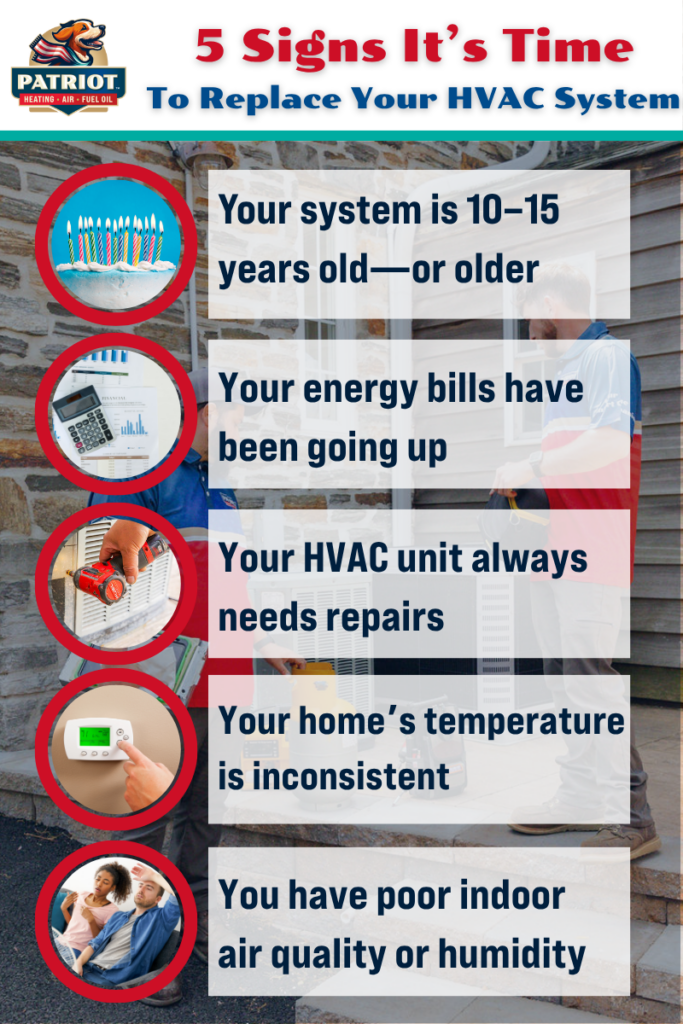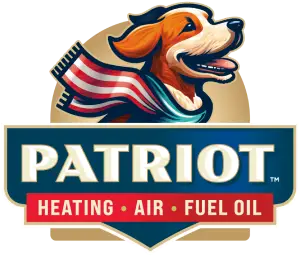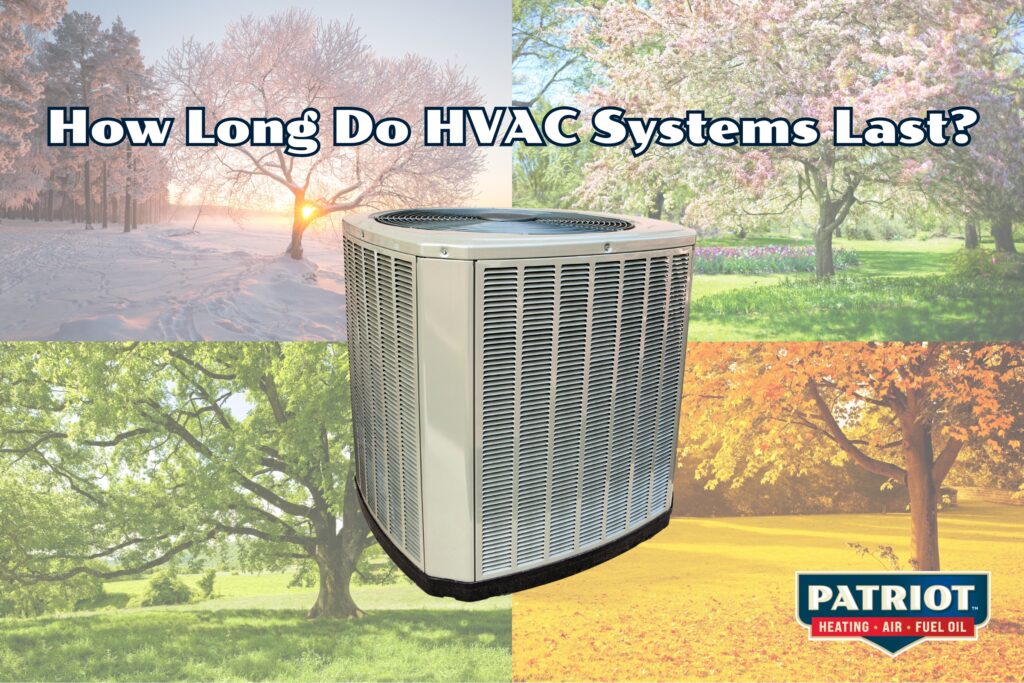Indoor climate control is something that many of us take for granted—we expect our HVAC system to be working whenever we need it. But no matter how well it’s maintained, every system has a shelf life. Knowing when to replace your HVAC system can help you avoid unexpected breakdowns, high energy bills, and poor indoor comfort. Residents in Bucks County and Montgomery County often experience frigid winters and hot, humid summers, so our HVAC systems get pushed to both extremes.
Here, we break down the typical HVAC system lifespan, the signs that it may be time for a replacement, and the benefits of upgrading to a modern, energy-efficient unit.
How Long Do HVAC Systems Last?
The typical HVAC system lifespan ranges between 10 and 15 years. However, this can vary depending on the quality of installation, frequency of maintenance, and usage patterns.
Different types of HVAC units also have different lifespans. Central air conditioners and heat pumps generally last about 10 to 15 years, while furnaces—especially gas models—often last 15 to 20 years with proper care. Ductless mini-split systems typically fall within a similar range, though their individual components may wear out at different rates.
Even with diligent upkeep, older systems may struggle with efficiency and reliability as they age. If you have an older system that has a breakdown, you’ll need to evaluate whether HVAC repair vs. replacement.

1. Your HVAC System Is Over 10–15 Years Old
If your HVAC system is over a decade old, it’s likely running less efficiently than newer models. Many systems experience more frequent issues after the 10-year mark, especially if they haven’t been consistently maintained. Newer, energy-efficient HVAC systems not only use less power, but they also offer advanced features like smart thermostats, variable speed motors, and zoning options. If you’re already shopping around, now may be the perfect time to consider a full AC installation with an Energy Star-certified unit.
2. Increasing Energy Bills Without Explanation
A gradual rise in your utility bills—especially without any changes in your usage—is a strong indication that your HVAC system is losing efficiency. Over time, wear and tear causes components to work harder, which increases your energy consumption. If your older unit is driving up costs, a replacement can quickly pay for itself through monthly savings.
3. Frequent Repairs and Breakdowns
Are you frequently calling a technician to repair your HVAC unit? Occasional maintenance is normal, but if you’re dealing with repeated breakdowns or expensive repairs, you may be throwing money at a system that’s past its prime. A good rule of thumb: if repairs are approaching 50% of the cost of a new system, replacement is likely the smarter long-term investment.
4. Inconsistent Temperatures and Poor Performance
Uneven heating or cooling, hot and cold spots in different rooms, or a unit that runs constantly without keeping up with your thermostat settings are all signs of decline. This can point to failing components or ductwork problems, but in many cases, an aging system simply can’t keep up with demand anymore. You may also notice it takes longer to heat your home in the winter, which could signal it’s time to explore heating installation options.
5. Strange Noises, Odors, or Poor Air Quality
Squealing, rattling, or banging sounds aren’t just annoying—they’re often signs that internal parts are wearing out or becoming loose. Foul odors might indicate mold, mildew, or even electrical issues. A noticeable decline in air quality, including excess dust or humidity, may also be a sign your system isn’t filtering and circulating air properly.
If indoor comfort has taken a hit, ask about IAQ services that work in tandem with a modern HVAC system to keep your environment clean, safe, and breathable.
Benefits of Replacing an Old HVAC System
Upgrading your HVAC system has multiple benefits, especially if your current unit is outdated or underperforming:
- Lower energy bills thanks to high-efficiency components
- Improved comfort through more consistent heating and cooling
- Fewer repairs, saving you time and money in the long run
- Better indoor air quality with improved filtration and ventilation
- Increased home value, which can be a major selling point
- Peace of mind knowing your system can handle seasonal extremes
These are just a few of the many HVAC upgrade benefits that come with making the switch.
Choosing the Right Replacement System
When it’s time to upgrade, choose a system that fits your space, budget, and comfort preferences. Work with a licensed HVAC professional who can evaluate your needs, inspect your ductwork, and recommend options based on your home’s layout and energy goals.
In Bucks and Montgomery County, having a reliable HVAC partner can make all the difference. A tailored system ensures optimal performance year-round and helps you get the most out of your investment.
Ready for a Replacement? Call Patriot
Understanding your HVAC system’s lifespan and knowing the signs of failure can help you avoid costly disruptions. If your system is aging, inefficient, or simply not keeping up, it may be time for a modern replacement.
Whether you’re dealing with inconsistent temperatures or rising energy bills, Patriot Heating, Air & Fuel Oil is here to help you stay comfortable all year long.
FAQ About HVAC Replacement
How long does an HVAC system typically last?
HVAC systems typically last between 10 to 15 years. With regular maintenance and timely repairs, some systems can operate effectively for up to 20 years, but efficiency and performance tend to decline over time.
How can I extend the life of my HVAC system?
You can extend the life of your HVAC system through routine maintenance. Change air filters regularly, schedule seasonal tune-ups, keep outdoor units clear of debris, and address minor issues before they become major problems.
Is it better to repair or replace an aging HVAC system?
Whether it’s better to repair or replace an aging HVAC system depends on your unit’s performance. If your system is over 10 years old and facing frequent repairs or rising energy bills, replacement is often more cost-effective in the long run—especially with newer, energy-efficient models available.
What are the signs that my HVAC system is no longer efficient?
Signs that your HVAC system is no longer efficient include unexplained increases in energy bills, uneven temperatures, excessive noise, longer run times, and reduced indoor air quality.
What’s the best time of year to replace an HVAC system?
The best times of year to replace an HVAC system are in the spring and early fall. HVAC contractors tend to be less busy, and you can avoid extreme weather while your new system is being installed.


